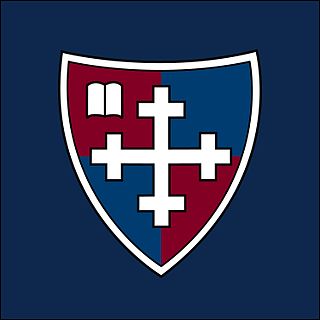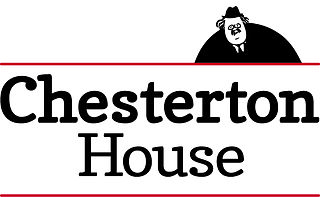
Gordon–Conwell Theological Seminary (GCTS) is an evangelical seminary with its main campus in Hamilton, Massachusetts, and three other campuses in Boston, Massachusetts; Charlotte, North Carolina; and Jacksonville, Florida. According to the Association of Theological Schools, Gordon-Conwell ranks as one of the largest evangelical seminaries in North America in terms of total number of full-time students enrolled.

Bowdoin College is a private liberal arts college in Brunswick, Maine. When Bowdoin was chartered in 1794, Maine was still a part of the Commonwealth of Massachusetts. The college offers 35 majors and 40 minors, as well as several joint engineering programs with Columbia, Caltech, Dartmouth College, and the University of Maine.

Anderson University is a private Christian university in Anderson, Indiana, United States. It is affiliated with the Church of God. The university offers more than 60 undergraduate majors as well as graduate programs in business, music, and theology.

Wheaton College is a private Evangelical Christian liberal arts college in Wheaton, Illinois, United States. It was founded by evangelical abolitionists in 1860. Wheaton College was a stop on the Underground Railroad and graduated one of Illinois' first black college graduates.

Messiah University is a private interdenominational evangelical Christian university in Upper Allen Township, Pennsylvania, near Mechanicsburg.
InterVarsity Christian Fellowship/USA (IVCF) is an evangelical Christian student movement with affiliate groups on university campuses in U.S.. It is a member of the International Fellowship of Evangelical Students.

Regent College is an interdenominational evangelical Christian College of Christian studies, and an affiliated college of the University of British Columbia, located next to the university's campus in the University Endowment Lands west of Vancouver, British Columbia. The school's stated mission is to "cultivate intelligent, vigorous, and joyful commitment to Jesus Christ, His church, and His world."

John Brown University (JBU) is a private interdenominational Christian university in Siloam Springs, Arkansas. Founded in 1919, JBU enrolls 2,343 students from 33 states and 45 countries in its traditional undergraduate, graduate, online, and concurrent education programs. JBU is accredited by the Higher Learning Commission and competes athletically in the Sooner Athletic Conference.

Gordon College is a private Christian college in Wenham, Massachusetts. The college offers 44 majors, 55 concentrations, and 30 interdisciplinary and pre-professional minors as well as graduate programs in education, music education, public health and leadership. Gordon has an undergraduate enrollment of around 1,600 students representing more than 50 Christian denominations.
King University is a Presbyterian-affiliated private university in Bristol, Tennessee, United States. Founded in 1867, King is independently governed with covenant affiliations to the Presbyterian Church (USA) and the Evangelical Presbyterian Church (EPC).

Council for Christian Colleges & Universities (CCCU) is an international organization of evangelical Christian colleges and universities. The headquarters is in Washington, D.C., United States.
Tyndale University is a Canadian private interdenominational evangelical Christian university in Toronto, Ontario, which offers undergraduate and graduate programs. Tyndale students come from over 40 different Christian denominations.

Saint Anselm College is a private Benedictine liberal arts college mostly in Goffstown, New Hampshire. Founded in 1889, it is the third-oldest Catholic college in New England. Named after Saint Anselm of Canterbury, the college continues to have a fully functioning and independent Benedictine abbey attached to it, Saint Anselm Abbey. As of 2017, its enrollment was approximately 2,000.

Mark Allan Noll is an American historian specializing in the history of Christianity in the United States. He holds the position of Research Professor of History at Regent College, having previously been Francis A. McAnaney Professor of History at the University of Notre Dame. Noll is a Reformed evangelical Christian and in 2005 was named by Time magazine as one of the twenty-five most influential evangelicals in America.
Lilly Endowment Inc., headquartered in Indianapolis, Indiana, is one of the world's largest private philanthropic foundations and among the largest endowments in the United States. It was founded in 1937 by Josiah K. Lilly Sr. and his sons, Eli Jr. and Josiah Jr. (Joe), with an initial gift of Eli Lilly and Company stock valued at $280,000 USD. As of 2020, its total assets were worth $21 billion.

Holy Cross College is a private, Catholic, co-educational, residential institution of higher education administered by members of the Congregation of Holy Cross in Notre Dame, Indiana. The college was founded by the Holy Cross Brothers in 1966.
The University Bible Fellowship is an international evangelical non-denominational Christian entity that originated in South Korea in 1961. It was founded through a partnership between a Korean, Samuel Chang-Woo Lee, and Sarah Barry, an American Presbyterian missionary who was sent to South Korea. The international headquarters of UBF is in Chicago. The group members are concentrated in South Korea, but has chapters in 91 countries including American universities and community colleges. The organization's stated goal is student evangelism.
Orthodox Christian Fellowship or OCF is the official campus ministry of the Orthodox Episcopal Assembly of North America, and was formerly under the Standing Conference of the Canonical Orthodox Bishops in the Americas (SCOBA). OCF is a Pan-Orthodox campus ministry that supports local OCF chapters. Local chapters are made up of students and young adults within a college or university, or from different colleges and universities in an area. The mission of OCF is to support fellowships on college campuses, whose members experience and witness to the Orthodox Christian Church through community life, prayer, service to others and study of the Faith. OCF was previously headquartered in Boston, Massachusetts but in 2008 it moved to Indianapolis, IN. OCF provides a variety of thoughtful and innovative programming, including regional training, annual conferences, and domestic and international service learning projects to chapters on over 300 university campuses across the U.S. and Canada.

Thomas Albert (Tal) Howard is a Professor of History and the Humanities at Valparaiso University, Indiana. He formerly directed the Center for Faith and Inquiry and was Professor of History at Gordon College in Wenham, Massachusetts. He completed his MA (1992) and Ph.D. (1996) at the University of Virginia, concentrating in modern European intellectual and religious history. He is founding director of Gordon College's honors program, the Jerusalem and Athens Forum, a one-year, great-books course of study in the history of Christian thought and literature. He served as a principal grant writer and project director of a multimillion-dollar project funded by the Lilly Endowment, entitled "Critical Loyalty: Christian Vocation at Gordon College."

Chesterton House is a Christian study center and 501(c)(3) organization affiliated with Cornell University in Ithaca, New York, that works with the students, staff, faculty, and administration of Cornell to bridge the academy and the Christian church. The work of the organization has been mentioned in major media outlets such as the New York Times and Wall Street Journal.














